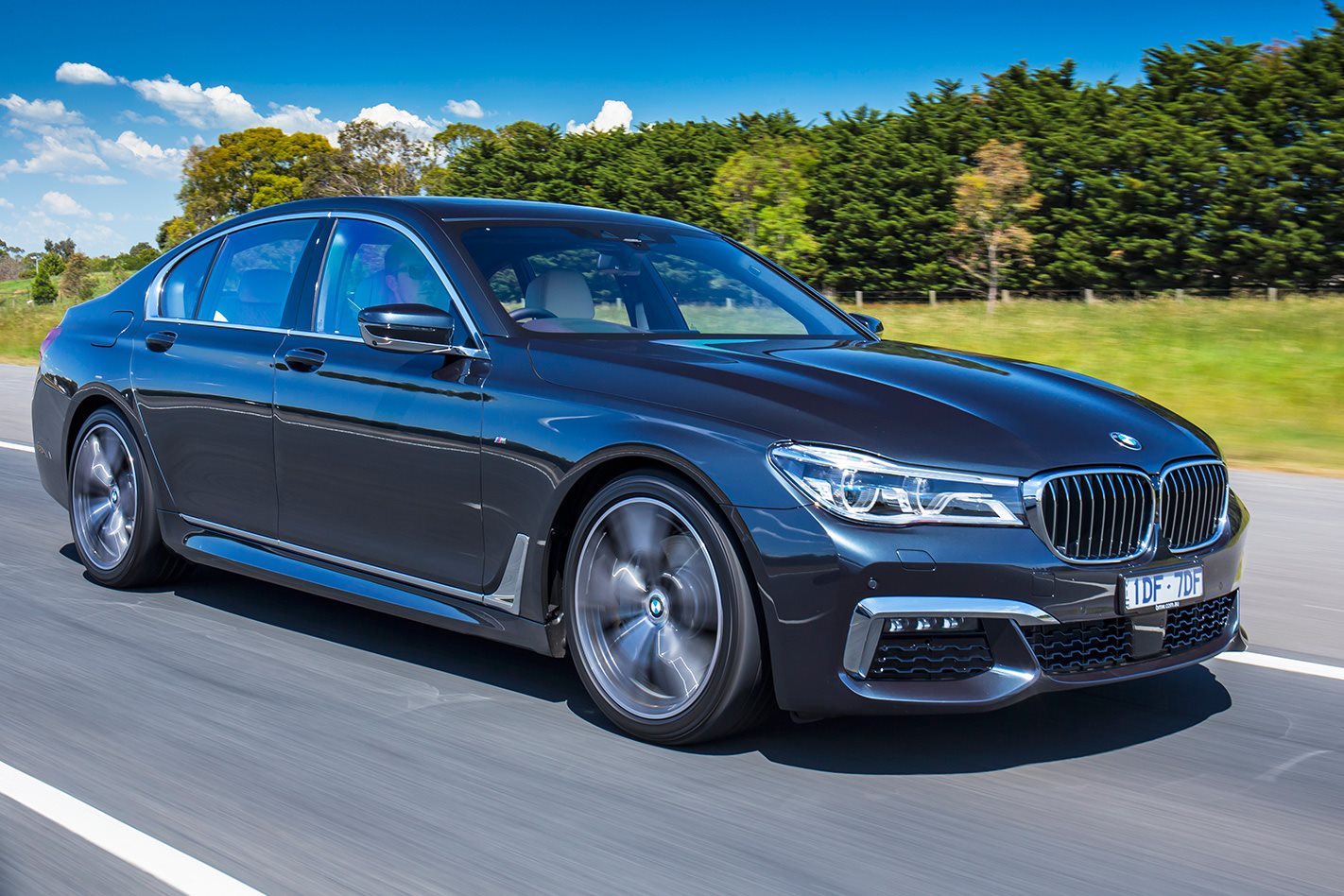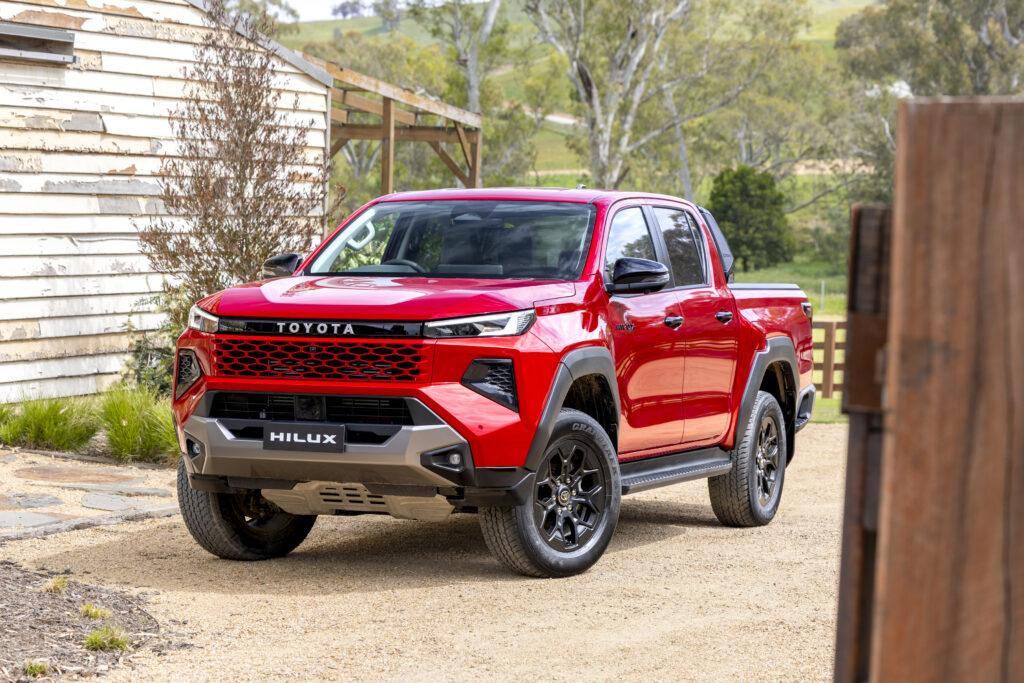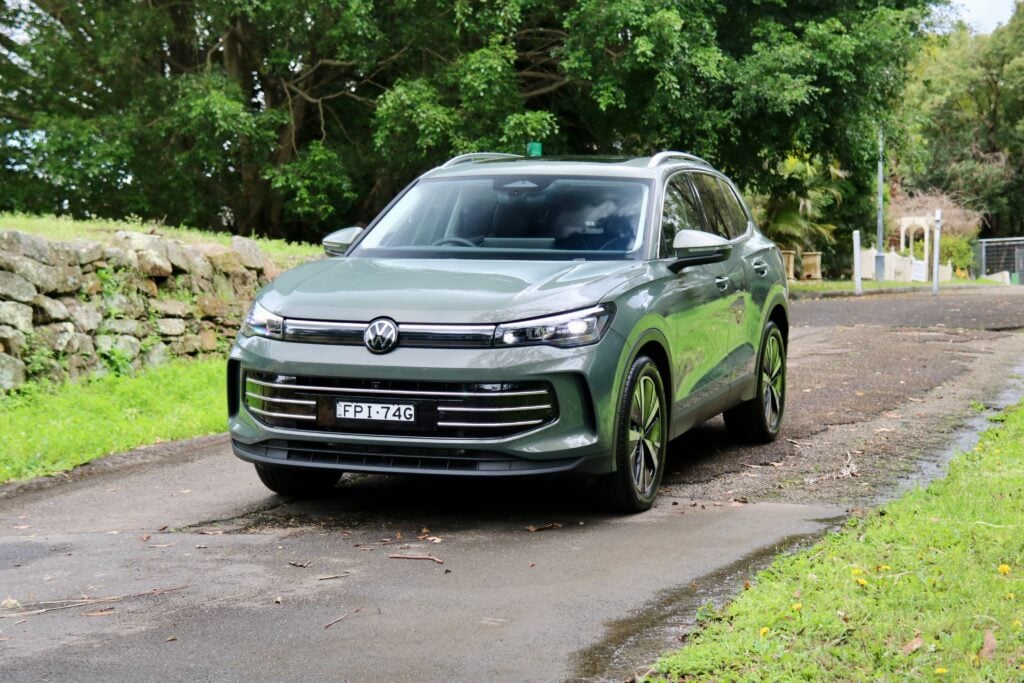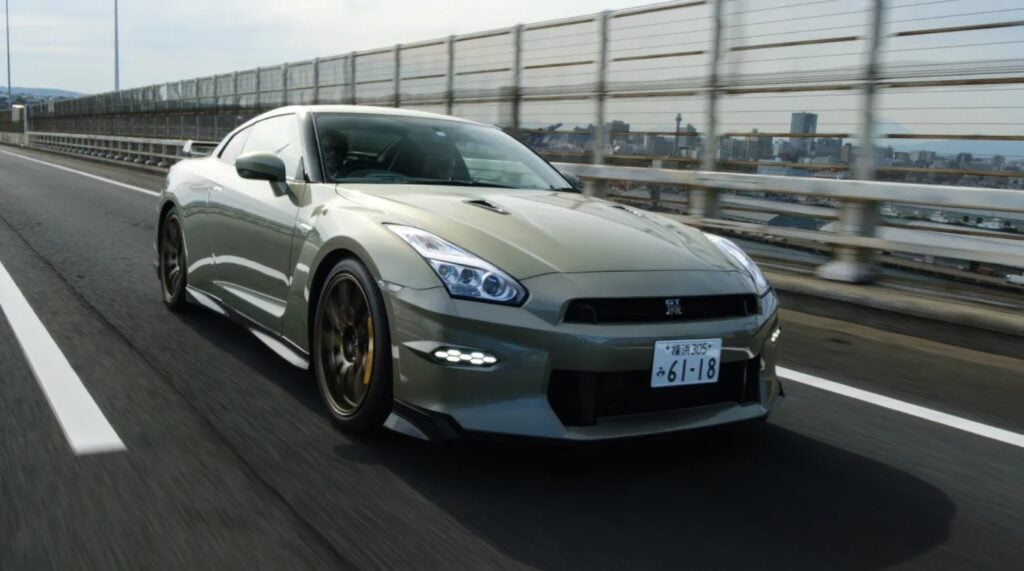Mercedes-Benz would no doubt dispute the claim, but BMW reckons its 7 Series, and not Merc’s S Class, is now the most technologically advanced car on the road (Tesla’s Elon Musk might be annoyed, too).
The new engines don’t make any giant leaps, but the carbon-fibre core, laser lights, gesture technology, integrated tablet for the rear passenger, iPhone-style Display Key and advanced suspension all make a fair argument for its claim. It might still use internal-combustion power, but other than that the 7 Series feels like the car of the future.
WHAT IS IT? A proper limousine/executive cruiser, now in its sixth generation, that just keeps getting bigger and better, in this case growing just 19mm in length. The BMW 7 Series is also very much a showcase for the technologies BMW will trickle down into all its cars over the next few years. This is the vehicle that everything from iDrive to ESP made their debut in. It’s also remarkably attractive for such a big unit.
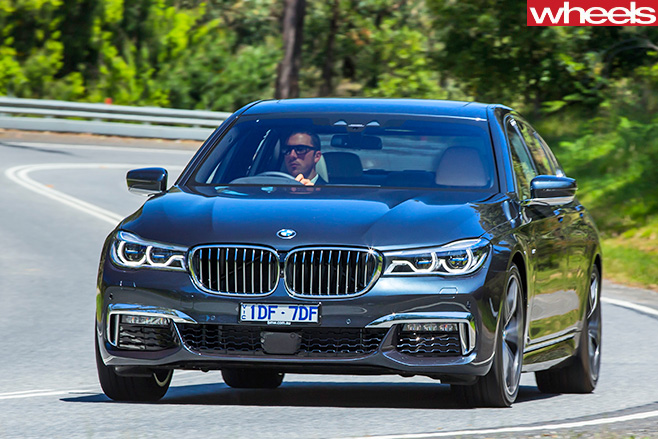
MAIN RIVALS Mercedes-Benz’s S Class range and the Audi A8 are the two big players here, and the Audi has long been the best looking, inside and out, but this 7 Series could actually challenge in that department. It remains to be seen, via comparison, whether it can match its claim of being the best driver’s car in the segment.
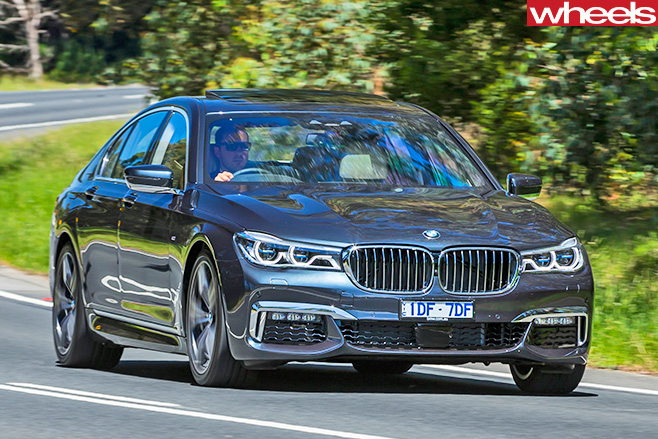
PLUS: Interior space; quality; powerful and economical engines; driving dynamics; ride; and just overall poshness MINUS: Semi-autonomous steering a bit buggy; prices go up and were high already, not sure gesture technology will catch on
THE WHEELS REVIEW JUST about every car company claims to have a “smart” key of some kind, but they’re all going to look like fob slobs next to the iPhone-esque Display Key offered with the new 7 Series.
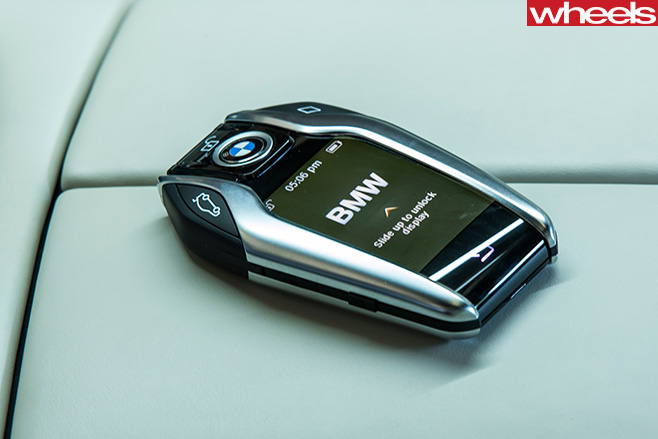
And, most importantly of all, it will be quite simply the coolest car key to drop on a bar, or a conference table – no contest.
This is merely the smallest of the leaps forward the new 7 – which BMW proclaims as the most technologically advanced vehicle on the road – makes, alongside gesture control, a carbon-fibre core lifted from the sexy i8 supercar (saving up to 130kg), semi-autonomous steering, an integrated tablet for rear-seat passengers, and laser headlights that double your effective high-beam distance from 300m to 600m.
BMW says the profile of its 7 Series buyers has changed in recent years, and that while they are still captains of industry, they’re much more tech-savvy and innovation friendly than they were when the contentious iDrive knob was launched in 2001, and the fear was that many of them didn’t even know how to program a VCR, let alone operate such software.
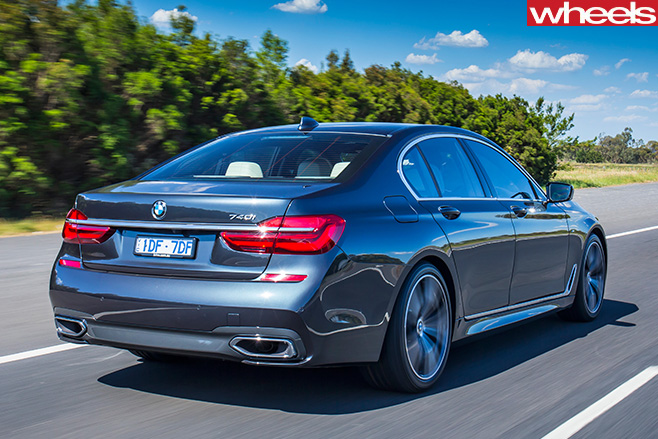
Perhaps the car’s most instantly striking achievement, though, after you’ve stopped goggling the key (which does become yet another thing in your life you’ll need to keep charged) is an old-fashioned one; its design. This sixth-generation of the biggest BMW has grown just 19mm in length but remains whale-like in proportion.
Designers have famously struggled to make the 7 Series look good in the past, but this one is definitely more Charlize Theron than Venus Williams, with a striking rear end and the biggest, boldest kidney grille ever fitted to a BMW (it’s also an active one, staying closed when started to aid warm-up, then opening and closing to aid aero).
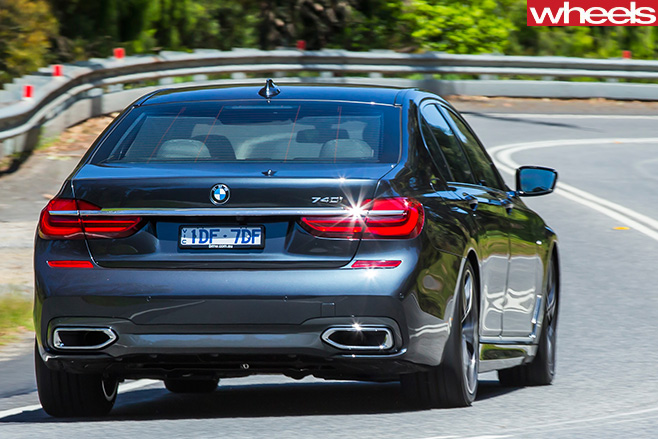
BMW likes to claim that its limo is the most driver focused and involving in the segment (some 85 per cent of buyers actually drive themselves around), and the new twin-turbo V8, straight six and diesel engines, aided by less mass to shift, certainly deliver. The almost freakishly quiet BMW 730d is a particular highlight, delivering 195kW and 620Nm from its 3.0-litre and an almost unfeasible fuel economy figure of 4.9 litres per 100 kilometres.
The steering is suitably regal and yet typically BMW in its muscular feedback, which makes it far more fun to drive than a Rolls-Royce Ghost, for example.
What must be an interesting discussion for the two conjoined companies is how well a 7 Series is allowed to ride. The engineers in Munich have the technology to give their luxury model the famous waft-iness, but they choose a slightly sportier set-up, with two-axle air suspension with automatic self-levelling.
The result is a beautifully controlled balance and an ability to filter out big bumps and small imperfections with equal ease.
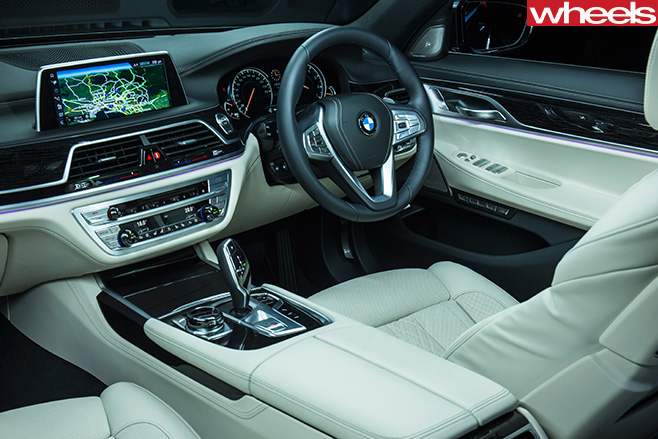
This, like so much else about the new 7 Series, is the kind of next-level technology that makes your inner geek have a little freak of happiness.
Some of the big Beemer’s tricks seem a little on the gimmicky side, while others, like the heated armrests, seem like genius, but the lasting impression is of a car that has truly raised the bar.
BMW Australia has thus seen fit to raise prices as well, with the 730d up $11,300 at $217,500; the 740i up $11,925 to $224,200 and the 750i just $6070 more at $289,600.
On the plus side, the M Sport package, which was previously ticked by 85 per cent of buyers despite costing $10,000 (the highest take-up in the world) is now a no-cost option. And thus a no-brainer.
SPECS Model: BMW 730 Engine: 29939cc, turbo diese in-line 6 Max power; 195kW @ 4000rpm Max torque: 620Nm @ 2000rpm-2500rpm Transmission: 8-speed automatic Kerb weight: 1755kg 0-100km/h: 6.1sec Fuel economy: 4.9L/100km (DCT 7.1L/100km) Price: $217,500

